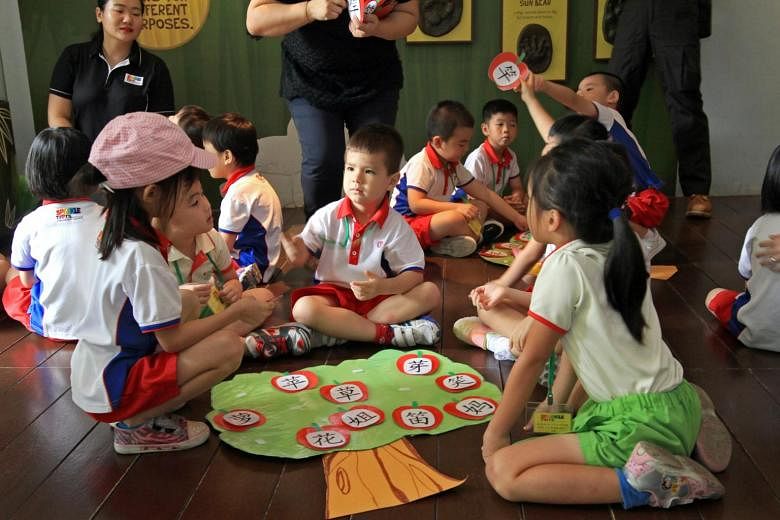The late Madam Kwa Geok Choo began learning Chinese only when she was in her 20s, during World War II, but seldom spoke the language although she could understand and speak it well.
It turned out that a friend had once told her she spoke Mandarin with an English accent, and she felt conscious about her pronunciation, Prime Minister Lee Hsien Loong said of his mother.
He cited hers and his own experiences during his Mandarin National Day Rally speech yesterday to illustrate why languages are better learnt when young.
"Adults can also learn a language, but it will not be as easy for them and they will not be as fluent," he said.
"If you learnt Mandarin as an adult, you may not be able to discern its four tones... And if you mispronounce Chinese words, you may end up making a faux pas."
PM Lee himself learnt Chinese at the age of three, when his parents enrolled him in the Chinese- medium Nanyang Kindergarten.
But he did not learn hanyu pinyin, which had not been adopted then.
The romanisation system helps students learn the proper pronunciation of Chinese words.
His Mandarin, thus, has a Nanyang, or Singaporean and Malaysian Chinese, accent, he said.
"Getting the right pronunciation is still not easy for me," PM Lee added.
Because mother tongues are used less at home these days, pre-schools play a greater role in teaching these languages, he said.
This is why the Government will work to improve bilingual education in pre-schools to give children a good foundation, in its push to upgrade pre-school education.


